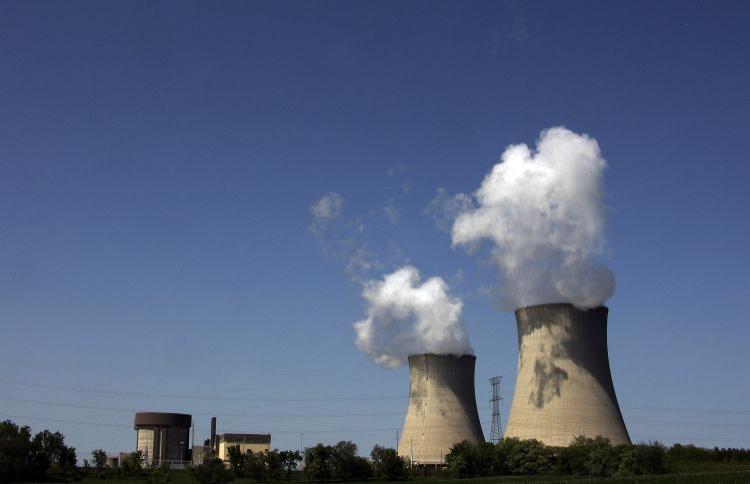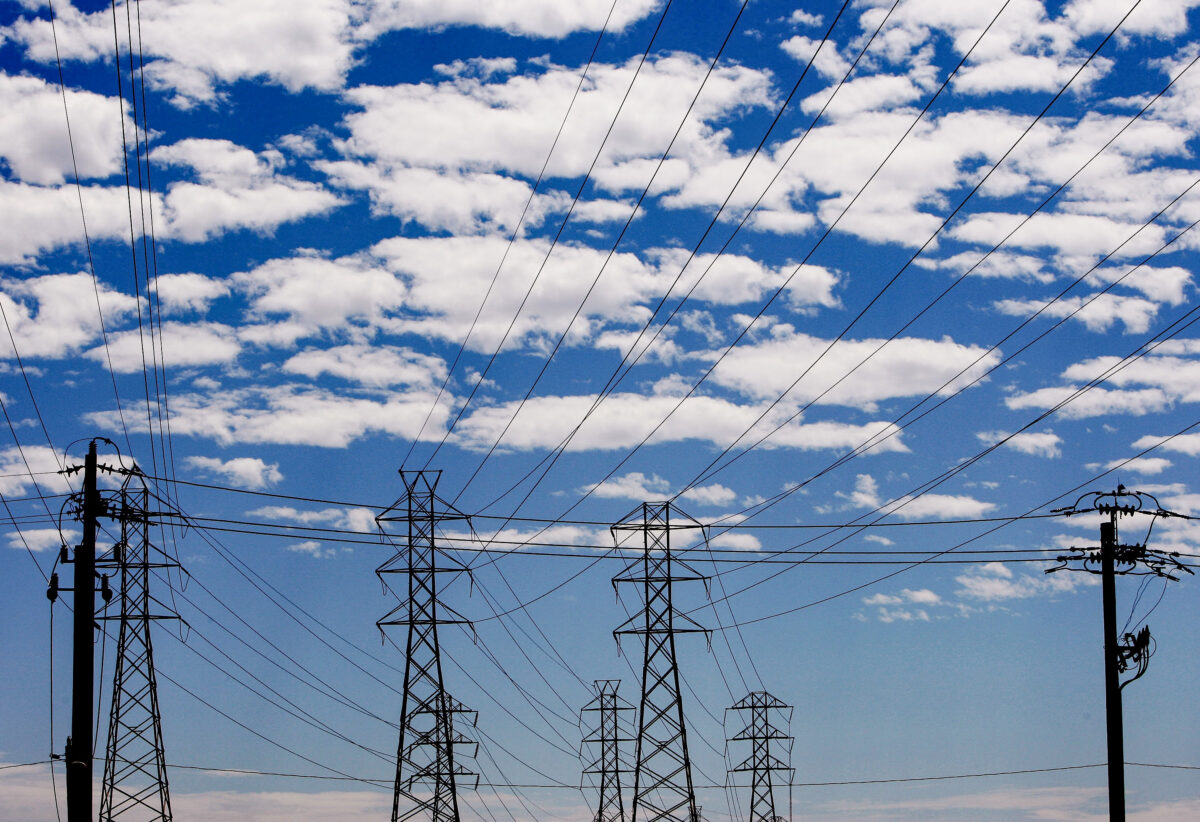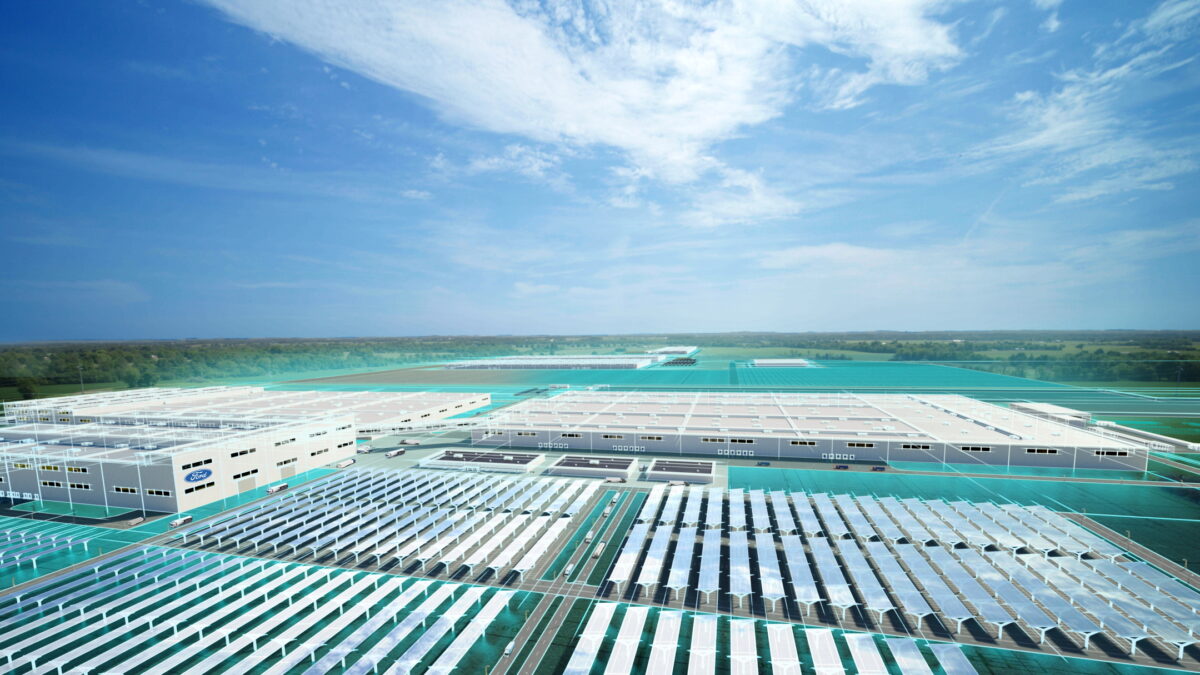
The state that was home to the Manhattan Project creating the atomic bomb and the Oak Ridge National Laboratory is seeking to become the national leader in nuclear energy. Republican Tennessee Governor Bill Lee signed an executive order advancing nuclear energy in the state on May 16.
Lee’s order (pdf) establishes the Tennessee Nuclear Energy Advisory Council, aiming to promote and invest in “safe, clean and reliable nuclear energy” and create a $50 million fund to help recruit companies in the nuclear industry to the state.
“Tennessee is ready-made to lead America’s energy independence and drive continued economic growth with safe, clean and reliable nuclear energy for the future,” Lee said in a press release. “Today, I’m signing an executive order that will continue our work to make Tennessee the number one state for nuclear energy companies to invest and thrive, bringing greater opportunity and quality jobs for Tennesseans.”
Lee also spoke on Monday at the annual Nuclear Energy Assembly in Washington “to highlight Tennessee’s leading role in the future of American energy.” Lee noted Tennessee gets roughly 44 percent of its energy from nuclear power plants.
Officials at the event said he was the first U.S. Governor to ever attend the assembly.
“Gov. Lee and [the Tennessee Valley Authority] are working together to make the Tennessee Valley region a leader in multiple industries, but nuclear energy in particular,” TVA Regional Vice President Justin Maierhofer said at the event. “Gov. Lee has been a strong supporter of reliable, clean, cost-effective nuclear energy, envisioning Tennessee as a leader in generating nuclear power as well as becoming a development and a supply chain hub for the nuclear industry.”
In his January address in, after taking office for his second term as governor, Lee made nuclear energy one of his priorities.


“No other state in the country comes close to Tennessee’s legacy, resources, and potential to be a leader in nuclear energy,” Lee said at the time. “And there is no long-term national strategy that doesn’t include nuclear energy.”
There, he proposed the $50 million fund, which was approved by the state’s General Assembly this session, to establish “a nuclear development and manufacturing ecosystem built for the future of Tennessee.”
“We cannot not pass up this opportunity. Tennessee can and should be the leader in nuclear energy for America,” he said in his speech.
The governor, alongside industry officials, spoke of the potential for clean energy through nuclear and how new technologies in the field could lead to the expansion of the energy source. The executive order Lee signed Monday seeks to put the state at the forefront of developing the next generation of nuclear energy.
Lee discussed the Clinch River Nuclear Site in Tennessee, the nation’s only federally approved but not yet developed nuclear site.
TVA has announced plans and issued an early-site permit (ESP) from the U.S. Nuclear Regulatory Commission for developing two or more small modular reactor (SMR) modules on the site.
According to the International Atomic Energy Agency, SMRs are advanced nuclear reactors that provide around one-third of the power generation of a conventional nuclear reactor while being physically a fraction of the size. As the name suggests, the units are also modular, making it possible for “systems and components to be factory-assembled and transported as a unit to a location for installation.”
The order emphasizes the advancement of safe, clean and reliable nuclear energy as “a crucial aspect of Tennessee’s conservation strategy,” striking a balance between economic growth and stewardship of the state’s vast natural resources.


Lee also allocates $50 million for the 2023-2024 fiscal year budget to provide grants and assistance for nuclear power-related businesses that relocate or expand in the Volunteer State.
In his remarks at the NEA, Lee brought up various reasons why he believed nuclear would be key to Tennessee’s future and economy. Lee mentioned Tennessee is one of only two states home to four major automotive manufacturers, including GM, Volkswagen, Nissan, and, shortly, Ford.
Ford chose Tennessee’s Memphis megasite for their new “Blue Oval City” production site. The battery and vehicle manufacturing campus will be the largest Ford facility in the world.
Lee brought this up to underscore the immense importance of electricity in attracting and keeping businesses. Ford, in announcing the project, stated they wanted the facility to be carbon-neutral along with the entire company being carbon-neutral by 2050.
He gave an example of how to view the nuclear industry, like the automotive industry in Tennessee, with Ford itself bringing in third-party suppliers. Ford will bring 6,000 jobs initially, he said, but the state projects 30,000 jobs will be created by the supply chain needs of the company.
“When we think about the nuclear industry that way…if we become the leader of nuclear technology in the country like we are becoming the leader in automotive electric vehicle manufacturing—then that ecosystem will come to our state as well,” Lee said.
Lee said the state’s strategy for energy in the future should be “diverse” as it “always has [been] in Tennessee.” He said with changes in the national conversation about meeting future energy demands, nuclear power is essential.


“We should look to nuclear energy as an enormous component,” he said. “In my view, there isn’t a conversation in America about the future of the American energy supply that doesn’t include nuclear.”
Not only in Tennessee, but nationally, he said nuclear power could create energy security and independence while producing “clean energy and cheap energy.”
Lee also focused in his remarks at the assembly on how education has played a role in the strategy to increase the nuclear energy field in Tennessee with a skilled workforce.
That included investments in middle school and high school Career Technical Education (CTE) courses, along with investments to state career and technical colleges focusing on educating workers in skilled trades, such as engineering.
The University of Tennessee (UT) also has a partnership with the Oak Ridge National Lab, Lee said. The Oak Ridge Innovation Institute educates postgraduates with career development courses to provide the skills needed at the highest level of technical ability.
He added that UT is one of “the largest engineering programs” in the nation, which sets Tennessee up to generate a skilled workforce to entice the industry to move to and expand in the state.
The council created by Lee’s order will include representatives from across fields and organizations. It will be composed of government officials and appointees—alongside representatives from higher education, workforce development, local government, and the utility and nuclear industries.


The council will be tasked with analyzing current or potential regulatory, workforce, and education barriers to establishing and expanding nuclear energy facilities within the state. They will also explore opportunities to harness existing and emerging technologies, such as SMRs.
By December 31, the chair of the council is required to deliver a preliminary report to Lee and state legislative officials, which includes an analysis of whether or not regulatory, workforce, and education barriers exist to the creation and expansion of nuclear facilities in the state.
The report should also analyze funding opportunities for state and local government as well as the private sector and opportunities for the state to “harness existing and emerging technologies.”
By October 31, 2024, the chair is expected to submit a final report with recommended legislative, policy, and budgetary changes to address “regulatory, workforce or education barriers” to the field in the state.
The final report is also to contain funding and opportunities, site considerations, storage and waste practices to preserve the environment, and federal actions to pursue alongside “federal partners and agencies.”
The national percentage of electricity that comes from nuclear power is much lower than in Tennessee and a few other states, with 18.2 percent of electricity generated in 2022 being nuclear energy, according to data from the U.S. Energy Information Administration (EIA).


The majority, 90 percent, of Tennessee’s energy generation comes from the federal TVA facilities in the state. They include “19 hydroelectric dams, seven natural gas-fired power plants, four coal-fired power plants, two nuclear power plants, and one pumped-storage hydroelectric plant.”
This EIA data further shows that Tennessee is a state that consumes “more than three times as much energy as it produces” and ranks in the “top one-third of the states in total energy consumption.”
This can be attributed to the fact the state is so large geographically, the EIA explains, as well as “the state’s role as a logistics hub and popular tourism destination spot.”
This leads to the transportation sector accounting for three-tenths of the state’s energy consumption, EIA data shows.
Along with transportation, EIA notes manufacturing accounts for around one-fourth of the state’s energy consumption, in fields such as food, beverage and tobacco manufacturing, along with motor vehicle and automotive parts, chemicals, fabricated metal products and electrical equipment.
As Ford and other Tennessee auto manufacturers build electric vehicles and as consumers in the state adopt them, energy needs will grow in the coming years.
TVA’s largest power plant by capacity and third largest in output in Tennessee is the coal-fired Cumberland power plant. TVA seeks to shut down this plant and replace it with a natural-gas plant for economic and environmental reasons.
“The TVA owns the power plant and wants to shut it down and replace it with natural gas-fired generation for economic and environmental reasons,” EIA data show. “The state’s next two largest power plants by capacity are both nuclear powered, and each generates more electricity than the Cumberland plant.”
TVA’s announcement they were moving forward with the natural gas plant drew concern from the Biden Administration and the Environmental Protection Agency (EPA).
TVA has said it can’t achieve the Biden Administration’s goal of a carbon-pollution-free energy sector by 2035 without technological breakthroughs in nuclear generation and energy storage.
The nuclear industry in Tennessee and advancement in new technologies in the field could help meet those goals, something that the Democrat in the White House and the Republican in the state house could possibly agree on.

![[GOOD PRESS] ON[GOOD PRESS] ON](https://georgemagazine.com/wp-content/uploads/2024/08/16389056566437433941_2048-300x300.jpeg)


Discount Applied Successfully!
Your savings have been added to the cart.